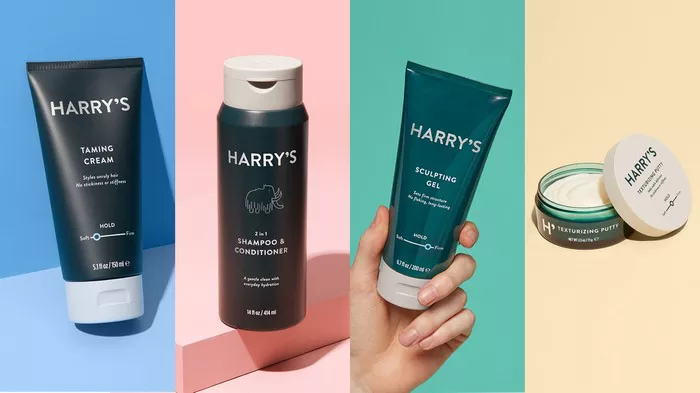Sulfates have become a significant topic of discussion in the realm of hair care. With an increasing focus on ingredient transparency and health-conscious consumerism, understanding sulfates and their role in hair products is crucial. This article aims to provide a comprehensive overview of sulfates in hair care, covering their definition, types, purpose, pros and cons, potential risks, sulfate-free alternatives, expert opinions, and guidance for consumers.
Definition of Sulfates
Sulfates, specifically in the context of hair products, refer to a class of detergents or surfactants commonly used in shampoos, conditioners, and other cleansing products. Chemically, sulfates are compounds containing the sulfate ion (SO4²⁻) combined with various cations. The most prevalent sulfate compounds in hair care products are sodium lauryl sulfate (SLS) and sodium laureth sulfate (SLES).
Common Types of Sulfates
Sodium lauryl sulfate (SLS) and sodium laureth sulfate (SLES) are two of the most commonly used sulfates in hair care products. SLS is known for its strong cleansing properties and ability to produce rich lather, making it a popular choice in shampoos. SLES, a derivative of SLS, is often used as a milder alternative due to its slightly reduced potential for skin irritation.
Other sulfates occasionally found in hair care formulations include ammonium lauryl sulfate (ALS), ammonium laureth sulfate (ALES), and TEA lauryl sulfate (TEA-SLS). While they may vary in their chemical composition and properties, their function as surfactants remains consistent.
Purpose of Sulfates in Hair Products
The primary function of sulfates in hair products is to act as surfactants, or surface-active agents, facilitating the removal of dirt, oil, and product buildup from the hair and scalp. Sulfates possess hydrophilic (water-attracting) and lipophilic (oil-attracting) properties, allowing them to emulsify and rinse away impurities effectively. This cleansing action helps maintain scalp hygiene and leaves the hair feeling refreshed.
Pros and Cons of Sulfates
Pros:
1. Deep Cleansing: Sulfates are highly effective at removing dirt, oil, and styling product residue from the hair and scalp, resulting in a thorough cleanse.
2. Rich Lather: Sulfates create a luxurious lather that enhances the sensory experience of shampooing, giving the impression of a more thorough cleansing process.
Cons:
1. Potential for Dryness: Sulfates can strip the hair and scalp of natural oils, leading to dryness, frizz, and potential irritation, especially for individuals with sensitive skin or certain hair types.
2. Color Fading: Sulfates may contribute to the fading of hair color, particularly for chemically treated or dyed hair, as they can strip away pigments from the hair shaft.
Potential Risks and Side Effects
While sulfates are generally considered safe for use in hair care products, some individuals may experience adverse reactions, particularly with prolonged or frequent exposure. Common side effects associated with sulfates include:
1. Skin Irritation: Sulfates can cause dryness, redness, itching, or flakiness of the scalp, especially in individuals with sensitive skin or conditions such as eczema or psoriasis.
2. Eye Irritation: Contact with sulfates, particularly in shampoos, can result in stinging, burning, or irritation of the eyes if not rinsed thoroughly.
Additionally, sulfate-containing products may exacerbate certain hair conditions, such as dandruff or dry scalp, by disrupting the natural balance of oils on the scalp.
Sulfate-Free Alternatives
For individuals seeking gentler alternatives to traditional sulfate-containing hair products, sulfate-free formulations offer a viable option. Sulfate-free shampoos and conditioners utilize alternative surfactants, such as coco-glucoside or sodium cocoyl isethionate, derived from natural sources like coconut oil or sugar. These alternatives provide effective cleansing without stripping the hair of its natural oils, making them suitable for sensitive skin and various hair types.
Expert Opinions
Dermatologists and hair care professionals offer valuable insights into the use of sulfates in hair products. While opinions may vary, many experts agree on the following points:
1. Individual Sensitivity: The suitability of sulfates in hair care products depends on individual factors such as hair type, scalp condition, and personal preferences. Individuals with dry or sensitive skin may benefit from sulfate-free alternatives.
2. Balanced Formulations: Products containing sulfates should be balanced with moisturizing and conditioning ingredients to counteract potential dryness and maintain hair health.
3. Patch Testing: Before using a new hair product, especially one containing sulfates, it’s advisable to perform a patch test to assess sensitivity and minimize the risk of adverse reactions.
Consumer Choices
For consumers concerned about the presence of sulfates in their hair products, understanding how to identify sulfates in ingredient lists is essential. Common sulfate ingredients to look out for include sodium lauryl sulfate (SLS), sodium laureth sulfate (SLES), ammonium lauryl sulfate (ALS), and ammonium laureth sulfate (ALES). Reading product labels carefully and opting for sulfate-free formulations when desired can empower consumers to make informed choices aligned with their preferences and hair care needs.
Conclusion
Sulfates play a significant role in the cleansing efficacy of many hair care products, providing deep cleaning action and rich lather. However, they may also pose risks for certain individuals, particularly those with sensitive skin or specific hair conditions. Sulfate-free alternatives offer a gentler option for cleansing while still maintaining hair health and cleanliness. By understanding the purpose, pros and cons, potential risks, and alternatives associated with sulfates in hair products, consumers can make educated decisions to support their hair care preferences and overall well-being.


